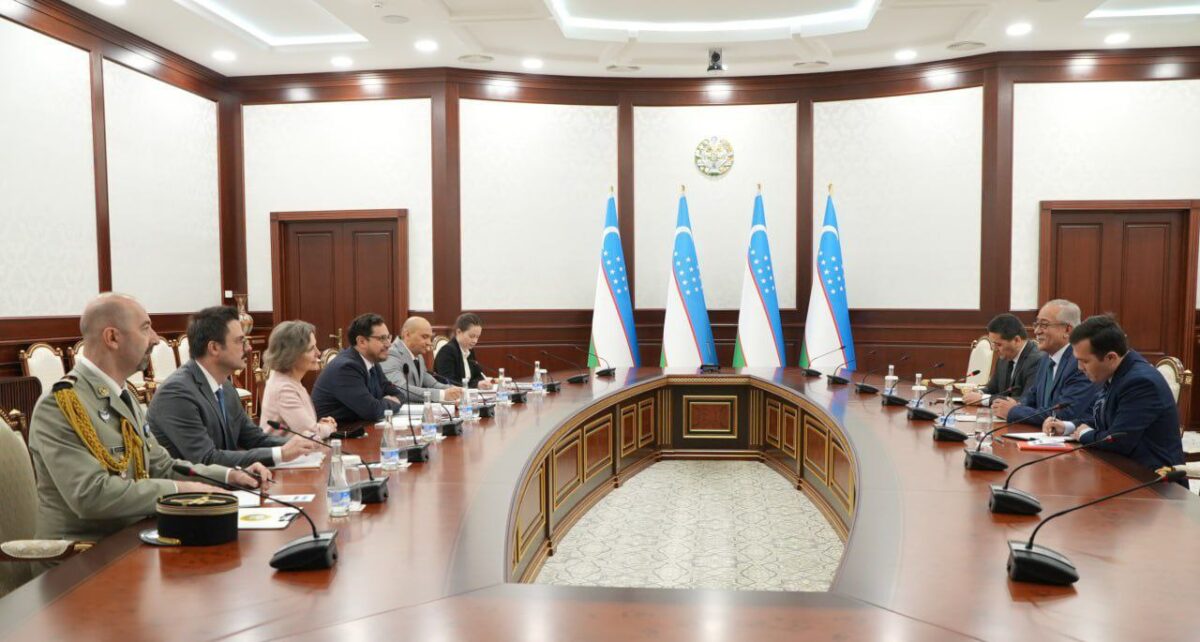The Foreign Ministry of Uzbekistan announced that Ismatulla Irgashev, the country’s special envoy for Afghanistan, recently met with a French delegation to discuss the evolving situation in Afghanistan.
The French delegation included Alexandre Escorcia, a senior official from the General Directorate of International Relations and Strategy at France’s Ministry of the Armed Forces.
The discussions focused on regional security challenges, particularly concerning border security, counterterrorism efforts, and the fight against drug trafficking and arms smuggling. According to the ministry’s statement, Escorcia emphasized Uzbekistan’s significant role in promoting stability in Central Asia.
This meeting marks the first official dialogue between Uzbek and French officials concerning Afghanistan’s security situation since the Taliban’s return to power in 2021. France, which has been vocal in condemning the Taliban’s restrictions on women and girls, remains wary of the potential regional impact of Afghanistan’s instability.
Countries in the region, including Uzbekistan, have repeatedly expressed concerns over terrorism and drug trafficking originating from Afghanistan. These issues were also underscored in a recent meeting among parliamentary leaders from neighboring nations. During his visit to Dushanbe, Iran’s parliamentary speaker Mohammad Bagher Ghalibaf disclosed that his discussions with Tajik officials centered on these same concerns.
Despite Taliban assurances of enhanced security, Central Asian states remain vigilant about the presence of groups like ISIS-Khorasan within Afghanistan. While the Taliban deny harboring terrorist organizations, United Nations reports indicate the existence of over 20 such groups operating in the country. Additionally, Pakistan has raised alarms over activities by the Tehrik-i-Taliban Pakistan, allegedly supported by the Taliban.
In a related statement, military analyst Bismillah Taban highlighted the risks posed by connections between ISIS-K and other branches, warning that they pose a growing threat to Afghanistan and its neighbors. Meanwhile, the Taliban have accused ISIS-K of launching attacks from Pakistan, further complicating regional dynamics.




